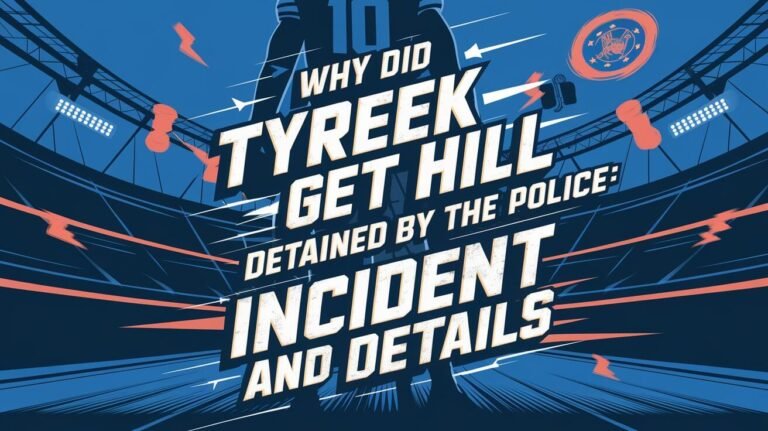When Police Lie to Judges to Get Search Warrants: Legal Issues & Consequences

Have you ever wondered what happens when police lie to judges to obtain search warrants? This sensitive issue raises serious legal and ethical concerns about protecting civil liberties while ensuring effective law enforcement. In this detailed guide, we’ll explore the legal standards, consequences, and accountability measures surrounding when police lie to judges to get search warrants.
To understand the gravity of this issue, we must first examine what constitutes lying or making misrepresentations on a warrant application.
What Constitutes Lying on a Warrant Application?
There are several ways a police officer can potentially lie or mislead a judge when seeking a search warrant:
- Knowingly including false statements in the affidavit or sworn testimony used to establish probable cause.
- Showing reckless disregard for the truth by making allegations without adequately investigating or verifying the information.
- Committing material omissions by leaving out important facts that would negate or significantly weaken the probable cause.
Unintentional negligence in false statements or omissions can still invalidate the warrant and resulting search.
The Franks v. Delaware Standard
The landmark 1978 Supreme Court case Franks v. Delaware established a critical legal test for when a defendant can challenge a search warrant based on police dishonesty or reckless disregard for the truth.
To obtain a “Franks hearing” on the matter, the defendant bears the burden of making a substantial preliminary showing that:
- The affiant officer knowingly and intentionally included false information, or acted with reckless disregard for the truth.
- The allegedly false statement or omission was necessary to the finding of probable cause to issue the warrant.
If this burden is met at the hearing, and the defendant proves police recklessness or lies, the typical remedy is suppression of any evidence obtained from the invalid search warrant.
Examples of Lies/Omissions Vitiating Warrants
Court cases provide insightful examples of police lies or omissions that have rendered search warrants invalid and unconstitutional:
- In one case, an officer swore a confidential informant personally purchased drugs from the defendant, when in fact the informant only carried a audio/video device to capture the deal remotely. The blatant lie about visual observation was deemed material to probable cause.
- In another case, police omitted information that the supposed drug dealer was merely a third-party lessee who happened to live where illicit transactions occurred, negating probable cause to search their residence specifically.
Essentially, lies or omissions found material to establishing probable cause can “vitiate” or invalidate the warrant under the Franks standard.
Consequences for Officers Who Lie
When police officers knowingly lie or show reckless disregard for the truth to obtain search warrants, they can face severe legal and professional consequences:
Criminal Charges: Intentionally lying under oath is perjury, a felony criminal offense in many jurisdictions. Other charges like evidence tampering or civil rights violations may also apply in egregious cases.
Evidence Suppression: As the remedy under Franks, all evidence obtained from an invalidated warrant will likely be suppressed and inadmissible at trial, jeopardizing prosecutions.
Credibility Impeachment: Even if not criminally charged, the officer’s credibility will be seriously undermined. All future testimony can be impeached with allegations or findings of dishonesty.
Job Termination: Police departments may terminate officers involved in serious warrant application misconduct as a breach of public trust and official duties.
Critics argue the consequences may not be proportional to the harm caused by unconstitutional, untruthful warrant applications.
Ethical Duties and Public Trust
Beyond just legal compliance, law enforcement has an ethical duty to uphold the highest standards of honesty and integrity when seeking to invade the sanctity of private homes and spaces.
The Fourth Amendment’s probable cause and particularity requirements for warrants reflect the utmost respect for privacy and constitutional civil liberties. Lying to circumvent these safeguards gravely corrodes public trust in law enforcement and the judicial system.
Police who lie in warrant applications not only violate due process rights, but violate the very oath they swore to uphold the laws and Constitution they are entrusted to protect.
Oversight and Accountability Measures
To prevent and correct incidents of police dishonesty in warrant applications, various oversight and accountability measures exist:
Judge’s Scrutiny: Judges have a responsibility to diligently review the substance and credibility of warrant applications, not merely rubber stamp them. They can deny seemingly dubious warrant requests.
Prosecutorial Discretion: Prosecutors can scrutinize warrants and decline prosecutions if they uncover material falsehoods or omissions not properly addressed by the courts.
Defense Challenges: Criminal defendants can file Franks motions to challenge warrants and seek evidentiary suppression hearings.
Internal Disciplinary Processes: Police supervisors and internal affairs investigators can launch misconduct probes and impose disciplinary actions for dishonest warrant practices.
Criminal Prosecution: In egregious cases, prosecutors can pursue criminal charges against officers for perjury, civil rights violations, evidence tampering, and official misconduct offenses.
While imperfect, these multi-layered accountability measures aim to uphold the truthfulness, integrity, and oversight of the constitutional warrant process.
Alternatives to Lying
Instead of resorting to lies or material omissions, law enforcement has various legitimate alternatives to gather evidence while respecting civil liberties:
- Further Investigation: Conduct additional surveillance, interviews, record monitoring, and other lawful methods to develop sufficient probable cause.
- Warrantless Exceptions: Certain situations like hot pursuit, plain view doctrine, consent searches, and others can legally allow reasonable warrantless searches.
- Anticipatory Warrants: Obtain contingent warrants based on testimony about future anticipated evidence, executable only upon the triggering conditions.
- Telephonic Warrants: Request time-sensitive warrants verbally over recorded lines with a judge in exigent circumstances.
Following protocols and laws is crucial for upholding the criminal justice system’s integrity.
Balancing Effective Enforcement and Civil Liberties
At its core, the issue of police lying for search warrants reflects a delicate balancing act between enabling effective law enforcement and safeguarding precious constitutional civil liberties.
No one disputes that police must have reasonable abilities to investigate crimes and gather evidence through legal searches and seizures. However, trampling due process rights corrodes the very laws and social compact officers have sworn to uphold.
Reforms and more stringent oversight may be warranted to ensure ethical practices while not unduly handcuffing conscientious law enforcement efforts. But fundamentally, maintaining public trust in legitimate policing requires a culture of zero-tolerance for lying or material omissions in the warrant process.
Law-abiding citizens expect police will carry out their sworn duties to protect and serve with honor, integrity, and full respect for legal and constitutional rights. Only through unfailing honesty and accountability can law enforcement maintain that invaluable public trust and credibility.






